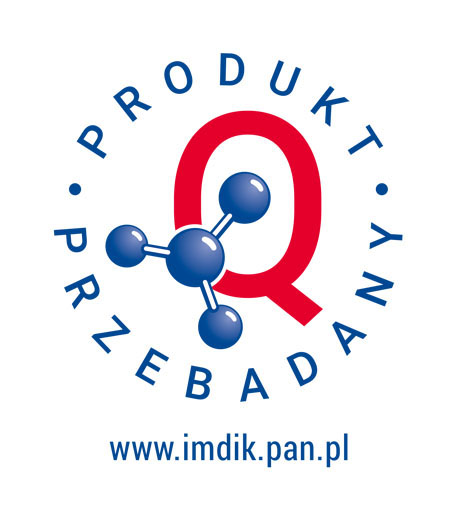Head of PhD Programme: Joanna Sypecka MD PhD MMRI Prof.
Department of Restorative Neurobiology
phone (+48) 22 60 86 508, This email address is being protected from spambots. You need JavaScript enabled to view it.
Room B123
PhD Student Affairs Office: Aleksandra Bilmin MA Eng.
Administration Office
phone (+48) 22 60 86 453, This email address is being protected from spambots. You need JavaScript enabled to view it.
Room B114
HELPFUL INFORMATION & DOCUMENTS
Doctoral Schools:
- DOCTORAL SCHOOL OF INFORMATION AND BIOMEDICAL TECHNOLOGIES POLSH ACADEMY OF SCIENCES
- DOCTORAL SCHOOL OF TRANSLATIONAL MEDICINE
Accessibility Officer: Aleksandra Krzosek
tel. +48 22 60 86 490, email: This email address is being protected from spambots. You need JavaScript enabled to view it. , room D101
Office hours:
- Monday 1:30 PM - 2:30 PM
- Tuesday 11:00 AM - 12:00 PM
- Wednesday 10:00 AM - 11:00 AM
- Thursday 1:00 PM - 2:00 PM
- Friday 2:00 PM - 3:00 PM
Online meetings (Google Meet) are available after prior chat contact.
Other meeting times are also available by appointment. Assistance is available to all doctoral candidates, doctoral students, and employees who require support.
We invite all interested parties to our office hours and encourage them to use the Accessibility Officer's assistance.
The activities of Accessibility Officer focus on:
- accessibility of the doctoral education process and the implementation of research, doctoral students, and accessibility of recruitment to doctoral schools,
- accessibility of the Institute for employees,
- accessibility of MMRI PAS within the scope specified in the Act on Ensuring Accessibility for Persons with Special Needs, i.e., architectural, information and communication, and digital accessibility – in cooperation with the relevant coordinators and the Head of Doctoral School.
RECRUITMENT - Projects within Doctoral School of Translational Medicine
Project number: MAESTRO 15 UMO-2023/50/A/NZ6/00423
1. Supervisor: Małgorzata Firczuk, PhD
2. Supervisor’s email: This email address is being protected from spambots. You need JavaScript enabled to view it.
3. Auxiliary supervisor, if applicable: Magdalena Winiarska, PhD This email address is being protected from spambots. You need JavaScript enabled to view it.
4. Research unit: Department of Immunology, Mossakowski Medical Research Institute Polish Academy of Sciences
5. Project title: Modulation of inhibitory pathways in T cells as a novel approach to enhance the efficacy of CAR-T therapy
6. Scientific discipline: medical sciences
7. Project description:
The project focuses on understanding the role of inhibitory receptors from the LILRB (Leukocyte Immunoglobulin-like Receptor subfamily B) family as intrinsic checkpoints in T lymphocytes and their relevance in CAR-T (Chimeric Antigen Receptor T cell) therapy. The research will include analysis of the signaling mechanisms and functional impact of LILRB on CAR-T cells, evaluation of LILRB1 stability as an immunotherapy target, and investigation of potential mechanisms of resistance.
8. Relevant literature:
- Marhelava et. al. Leukemia. 2025 Jun;39(6):1395-1411. doi: 10.1038/s41375-025-02580-z.
- Kang et. al. Cell Cycle. 2016;15(1):25-40. doi: 10.1080/15384101.2015.1121324.
- Wang et. al. EMBO Mol Med. 2024 Aug;16(8):1755-1790. doi: 10.1038/s44321-024-00106-1. Epub 2024 Jul 19.
9. Candidate requirements:
- Graduate or student in at least the 4th year of medical, pharmaceutical, biology, biotechnology, or related studies
- Experience in laboratory work in biochemistry, molecular biology, experimental oncology, or immunology
- Basic hands-on experience with flow cytometry
- Strong motivation for conducting scientific research and a willingness to systematically expand knowledge
- Fluent command of English, both spoken and written
- Excellent organizational skills and attention to detail
- Ability to work independently as well as in a team
10. Scholarship amount:
Before the mid-term evaluation, the monthly scholarship will amount to: PLN 4276.07 gross
After the mid-term evaluation, the monthly scholarship will amount to: PLN 5350.00 gross
11. Number of positions available: 1
12. Application deadline: 5.11.2025






